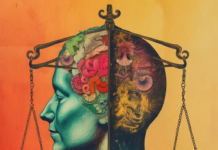A new study finds that the inclusion of peer researchers has improved both research outcomes and clinical skill sets, demonstrating the value of involving individuals with lived experience in research endeavors.
The study, published in the Journal of Responsible Technology, documents a participatory research project at The Banyan, a nonprofit mental health organization based in Chennai, India. The 2019 service utilization audit included 18 peer researchers—longtime service users—who were trained to conduct interviews and contribute to data analysis. By partnering them with staff researchers and equipping them with the tools of inquiry, the project not only improved research quality but also offered a form of personal and political empowerment in a setting shaped by severe resource limitations.
“Historically, people with severe mental illness were not involved in deciding about their care regime owing to the anachronistic view of lacking the ability to completely understand and grasp the entirety of their ill-health and consequent treatment pathways, which further compounded their sense of powerlessness within a system that was intended to address their needs,” the authors write.
The participatory research model builds on a growing body of scholarship and advocacy that challenges traditional hierarchies in mental health research and calls for centering lived experience in knowledge production. The findings also align with research on how community participation can address the limitations of traditional psychiatric research models by recognizing individuals with lived experience as co-creators of knowledge.
In the Indian context, the study stands alongside recent investigations into systemic neglect in psychiatric institutions, the politics of care in unhoused psychiatric camps, and the emancipatory framing of psychosocial disability activism. It adds further weight to recent calls for “strong objectivity” in qualitative research and complements international efforts, such as peer research projects in Ghana and Indonesia. Taken together, these works contribute to an ongoing movement to democratize psychiatric knowledge by recognizing the authority, insight, and leadership of individuals who have historically been positioned only as subjects of research.
















“anachronistic,” is a totally inappropriate term to use … given the fact we are trying to end today’s totalitarian, scientifically “invalid” DSM “bible” billing system.
And bring about “participatory research [models that are built] on a growing body of scholarship and advocacy that challenges traditional hierarchies in mental health research and calls for centering lived experience in knowledge production. The findings also align with research on how community participation can address the limitations of traditional psychiatric research models by recognizing individuals with lived experience as co-creators of knowledge.”
For God’s sake, why would a psych “professional,” who has never taken a psych med,” know more about the psych “meds,” than a person who has been on them? They wouldn’t, and they don’t.
Report comment